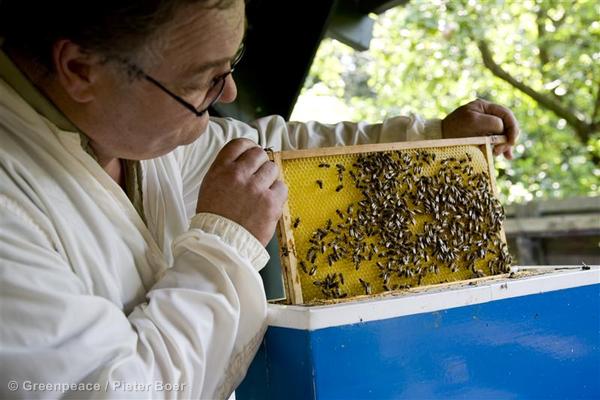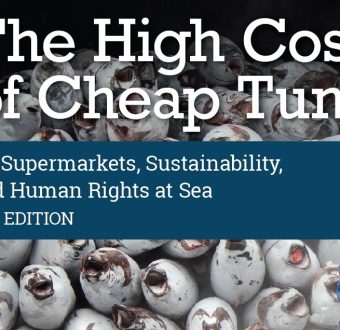Originally posted to Grist by John Upton
Bees and other insects can breathe a little easier in Oregon for now. The state has responded to the recentbumbleocalypse in a Target parking lotby temporarily banning use of the type of pesticide responsible for the high-profile pollinator die-off.
Oregon Department of Agriculture Director Katy Cobasaid in a statement[PDF] that she has directed her agency to impose the ban to help prevent further such bee deaths connected to pesticide products with this active ingredient until such time as our investigation is completed.Conclusions from the investigation will help us and our partners evaluate whether additional steps need to be considered.
Somewhat confusingly, retailers will still be allowed to sell the products. It will just be illegal for landscapers and gardeners to actually use them.FromThe Oregonian:
Were not trying to get it off the shelves, or trying to tell people to dispose of it, were just telling people not to use it, said Bruce Pokarney, a spokesperson for the department of agriculture.
While Pokarney acknowledged it would be difficult to cite individual homeowners, he said licensed pesticide applicators would be violating Oregon regulations if they use dinotefuran-based insecticides on plants in the next 180 days.
The temporary ban only affects pesticide use that might harm pollinators, like bumblebees. Safari is one of the insecticides restricted by the Agriculture Department. Most of the restricted insecticides are used primarily for ornamental, not agricultural, pest control.
Dinotefuran use in flea collars, and ant and roach control will still be allowed.
The Xerces Society, a nonprofit insect conservation group thats helping to investigate the pollinator die-offs, thinks the temporary ban is a good idea. But Executive Director Scott Black said it would be an even better idea if sales of the pesticides were suspended, lest consumers unwittinglyuse them in violation of the law. At a minimum, all products on the shelf should have clear signage about the restriction on their use, he told Grist.
Guess who thinks the ban is not such a good idea?
We do not believe the scope of these measures is necessary with the information available,Safari manufacturer Valent said in a statement, and we will work to get the restrictions lifted as soon as possible.




